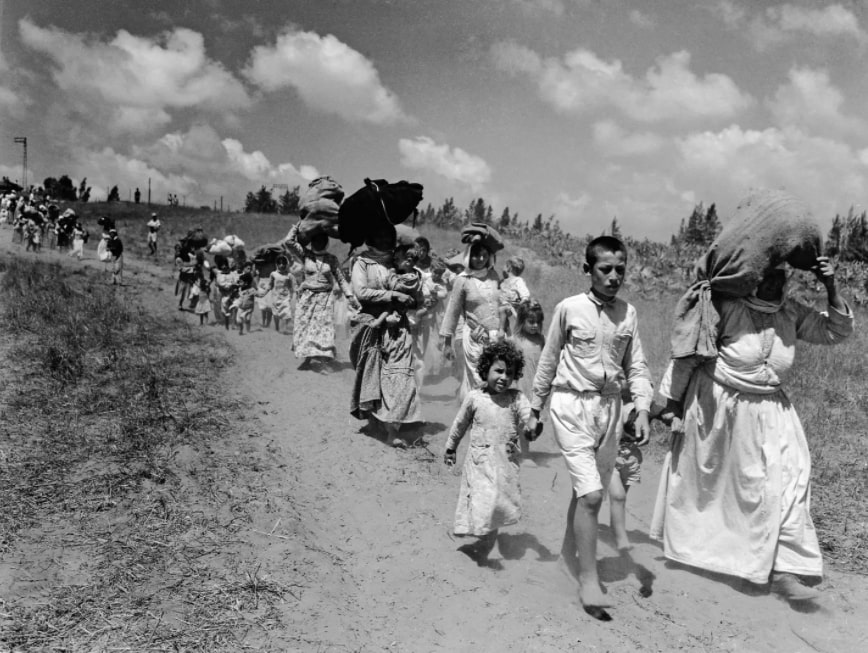While the Nakba is associated with a specific date, it has only persisted under the Israeli occupation, which continues to forcibly displace, kill, and detain Palestinians.
The United Nations is commemorating Nakba Day, which falls on 15 May, for the first time this year, though the intergovernmental organisation has yet to grant Palestine its full membership at the international body.
The first commemoration will take place at the UN’s headquarters in New York and on the 75th anniversary of the Nakba, or “catastrophe”. The Nakba marks the beginnings of the mass expulsion of Palestinians in 1948 by Zionist militias to establish Israel.
In December last year, the UN General Assembly adopted a resolution to commemorate the Nakba following the vote of 90 states. Israel’s allies, chief of which is the United States, were among 40 who voted against it.
The resolution also entails publishing archives and evidence related to the Nakba.
Between 1947 and 1949, at least 750,000 Palestinian from a 1.9 million native population were forced out of their own land as Zionist militias ethnically cleansed and destroyed at least 530 villages and cities.
Since then, Israel has carried out more than 70 massacres.
In 1947, the UN was at the centre of criticism for adopting a resolution that split up Palestine, paving the way for the Nakba.
To date, Palestine continues to demand full membership at the UN. Israel received this as far back as 1949.
Palestine was only granted the status of a “non-member observer state” at the international organisation in 2012 under a resolution adopted by the General Assembly.
Granting Palestine a full membership would require the greenlight from the Security Council where the US, Israel’s closest ally, holds veto power.
The full UN membership, if granted, would mean Palestine’s statehood is recognised internationally.
Ongoing Nakba
While the Nakba is associated with a specific date, it has continued decades on under the ongoing Israeli occupation, which continues to forcibly displace, kill, and detain Palestinians.
Between 2009 and 2022, Israel demolished at least 8,413 Palestinian structures, as per figures shared by the UN Office for the Coordination of Humanitarian Affairs (OCHA).
According to 2020 figures by the Palestinian Central Bureau of Statistics (PCBS), there are up to 5.6 million Palestinian refugees, with at least 28.4% scattered in 58 UNRWA-run camps in Jordan, Syria, Lebanon, the West Bank and Gaza.
Qatar is among the countries that have long refused to normalise with Israel as it continues to commit human rights violations against Palestinians.
Speaking to France’s Le Point last year, Qatar’s Amir Sheikh Tamim bin Hamad Al Thani slammed Israel’s occupation of Palestine.
“Every country has the right to establish relations with the countries it wants. But what is normalisation with Israel? Seriously, are things normal in Israel? No!” Sheikh Tamim told France’s Le Point.







